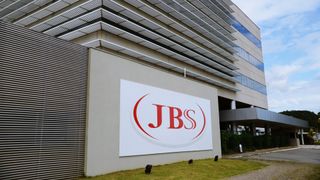Cyber attack shuts down food giant JBS
Australian operations have been suspended for at least 24 hours as IT professionals work to restore services

The world's largest meat processor, JBS Foods, has had its production network severely disrupted following a cyber attack.
The firm said over the weekend that some of the servers supporting its US and Australian IT systems were compromised by unidentified hackers, according to Beef Central. The firm suspended all affected systems, and activated its global network of experts and IT professionals to resolve the situation.
JBS' backup servers weren't affected, and the company isn't aware of any evidence that customer, supplier, or employee data was seized or abused as part of the cyber attack. Operations, however, were immediately disrupted, with JBS shutting production down in Australia for at least 24 hours. The full extent of the attack is still being measured.
"The technology they use goes to the heart of the quality assurance of the beef they are processing," said Australia's agriculture minister, David Littleproud, to ABC. "We need to make sure we can get that up and going to give confidence not just to consumers in Australia, but also to our export markets.
"They are obviously working with law enforcement agencies here in Australia and we're working in partnership with other countries to get to the bottom of this. Since it is a global attack it's important not to speculate that it's emanated from any particular place, just yet."

Don’t just educate: Create cyber-safe behaviour
Designing effective security awareness and training programmes
The company said it would strive to restore operations as soon as possible, but doing so would be impossible without full access to its IT and internal systems.
The nature of the attack, or the intentions of the attackers, are not known at this time, although the attack style is consistent with several other high-profile cyber attacks against large businesses in recent months, including ransomware attacks.
Get the ITPro. daily newsletter
Receive our latest news, industry updates, featured resources and more. Sign up today to receive our FREE report on AI cyber crime & security - newly updated for 2024.
Bose, for example, confirmed last week that it had suffered an attack in early March, with employee data being exposed in the process. Various health services across the world, too, have been hit by ransomware infections, including the Irish and New Zealand services.
One of the most infamous recent incidents was the Colonial Pipeline attack, in which hackers took down the energy supply for vast swathes of the US East Coast. The cyber security firm Elliptic claimed, in the aftermath of the attack, that operators paid the attackers a ransom of more than $5 million to restore operations.
Research published last month found that the manufacturing, health care, and finance industries saw a 300%, 200%, and 53% increase in worldwide attacks respectively over the last year.

Keumars Afifi-Sabet is a writer and editor that specialises in public sector, cyber security, and cloud computing. He first joined ITPro as a staff writer in April 2018 and eventually became its Features Editor. Although a regular contributor to other tech sites in the past, these days you will find Keumars on LiveScience, where he runs its Technology section.




